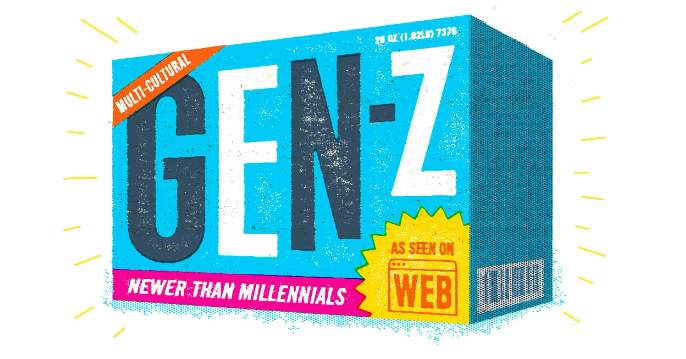
。。。米奇·伯顿
我们每天发表一篇文章来表彰第五届年度学生社论大赛的前 10 名获奖者。
下面是17岁的埃琳娜·夸塔拉罗(Elena Quartararo)的文章。
Adults seem to think the internet is nothing more than a breeding ground for unproductivity and detachment from the “real world,” that social media offers only a platform for cyberbullies and child predators. They mock us for our so-called “addiction,” calling us a self-involved, attention-starved generation. But if you ask any intelligent young person — two adjectives that are not mutually exclusive — they’ll tell you all about what the information superhighway really means to us.
Today’s youth have come of age in an atmosphere where encroaching problems of climate change, global terrorism, economic crises and mass shootings — to name a few — have opened our eyes to the reality we’re living in, the weight of fixing it all resting on our shoulders. But we’ve also grown up in a world where we can type into Google anything we want to learn more about; we can engage with millions of people from all walks of life, come to understand perspectives at every angle. Knowledge is powerful, and we have all that we could want available at our fingertips.
The reality is I follow news pages on my Instagram. I can’t go a day on Twitter without seeing profound statements concerning the political climate. I have discussions with people over gun control and women’s rights based on what I’ve posted on my Snapchat story. Like it or not, social media has given us a way not only to speak out, but to educate ourselves and expand our minds in a way that is unprecedented.
We’ve become the most tolerant and conscious generation to date, with 76 percent of Gen Zers concerned about humanity’s influence on the Earth and 60 percent hoping the job they choose impacts the world. Race, religion, sexuality, gender identity and anything differing from what has so long been deemed normal are all topics we don’t write off, with a revolutionary 37 percent and 21 percent not identifying as 100 percent straight or 100 percent one gender, respectively. We get to experience the world from everyone’s point of view; we’re not limited by the danger of the single story, aren’t held back by our own ignorance.
So, I urge adults to back off, to encourage young people to use the internet to their advantage. Because while it’s easy to understand the mental and emotional drawbacks that can be associated with the cyberworld, this connection to a diverse plethora of information has given us the opportunity to reach our own conclusions about the world, to make our beliefs known, to mobilize in efforts and take a stand — from protests and marches planned by students, to educating others on registering to vote — and it has created a socially and politically aware, opinionated and unafraid youth, who are wholly prepared to change the world.
Works Cited
Abramovich, Giselle. “15 Mind-Blowing Stats About Generation Z.” CMO.com by Adobe: Digital Marketing Insights, Expertise and Inspiration – for and by Marketing Leaders, 12 June 2015.
Barr, Caelainn. “Who Are Generation Z? The Latest Data on Today's Teens.” The Guardian, 10 Dec. 2016.
Kemper, Nychele. “The March For Our Lives Was Influenced by Literature and Social Media.” The Odyssey Online, 3 Apr. 2018.
Potarazu, Sreedhar. “Is Social Media Ruining Our Kids?” CNN, 22 Oct. 2015.
Williams, Alex. “Move Over, Millennials, Here Comes Generation Z.” The New York Times, 18 Sept. 2015.